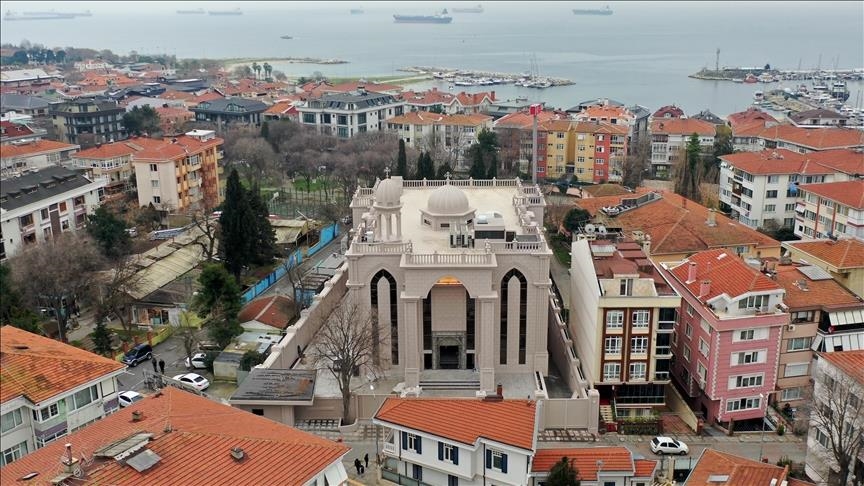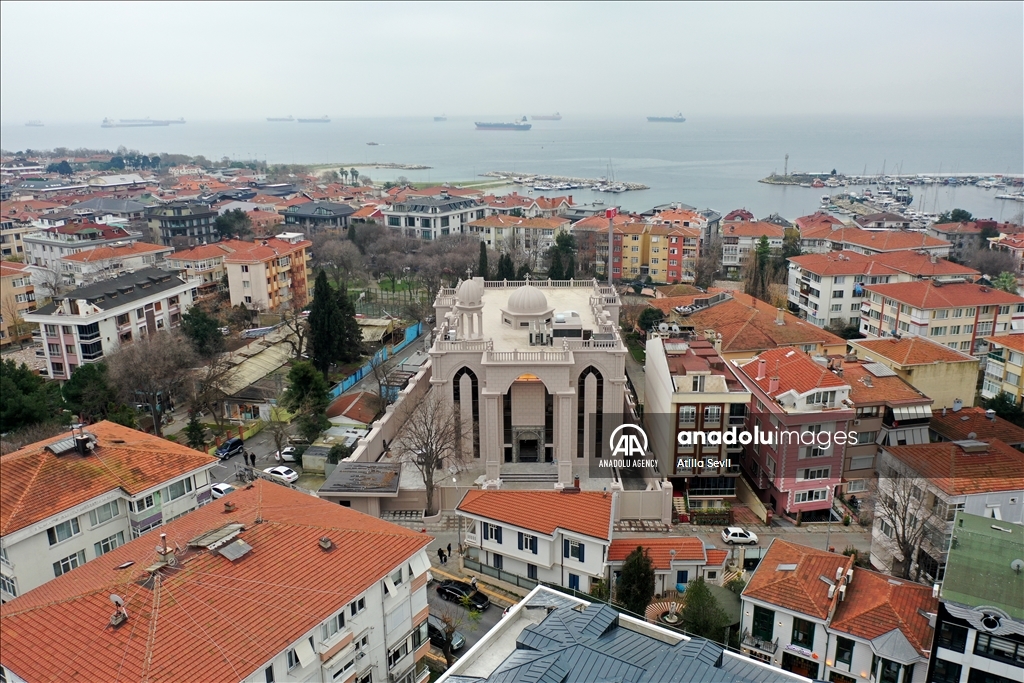ISTANBUL
The first-ever church built during the Turkish Republic era is planned to open its door to Christians soon.
Sait Susin, president of the Istanbul Syriac Kadim Foundation, told Anadolu Agency that they plan to open the church, which cost about $4 million, in two months.
In a 2019 ceremony attended by Turkish President Recep Tayyip Erdogan, the foundation was laid for the St. Ephrem Syriac Orthodox Church in Yesilkoy on the European side of Istanbul.
Susin said there are some churches from the Turkish Republic era, but all of them are churches that were either repaired or about to fall, not built from scratch.
“They were built without official permission. It is the first time that a church has been officially built (in the history of the Turkish Republic). This gives us great pride,” he added.
Built in line with needs of modern day
Susin said the church, built in 1844 in the Tarlabasi neighborhood in Istanbul’s Beyoglu district, did not meet the needs of the Assyrians in the city, so they tried to pray in six churches belonging to fellow congregations.
However, the churches of the fellow congregations did not fit well with their own rituals and they had timing issues, he said, and they needed a new church.
There was a need for a church in the Yesilkoy, Bakirkoy, and Florya districts of Istanbul, where the Assyrian community is densely populated, Susin said.
“We requested our government to allocate a place for us. We said we wanted a place in Bakirkoy, where our people mostly lived, and to build our church there. President Recep Tayyip Erdogan, since his term in the office of the prime minister, and former Istanbul Mayor Kadir Topbas paid attention to this issue.”
He also emphasized that the church was built in line with the needs of the modern day and based on examples of historic churches. “We tried to build a church which meets today’s needs by using the features of Syriac churches.”
The bell tower of the church, which was built on 700 square meters (7,535 square feet) alongside the Latin Catholic Cemetery, was inspired by historic monasteries in Mardin, southeastern Türkiye.
One story of the five-story church was reserved as a cultural hall for the community to meet after mass or ceremonies such as baptisms, funerals, and weddings as well as meetings and conferences. On the ground floor are the bishop’s quarters, guest rooms, and a parking lot.


